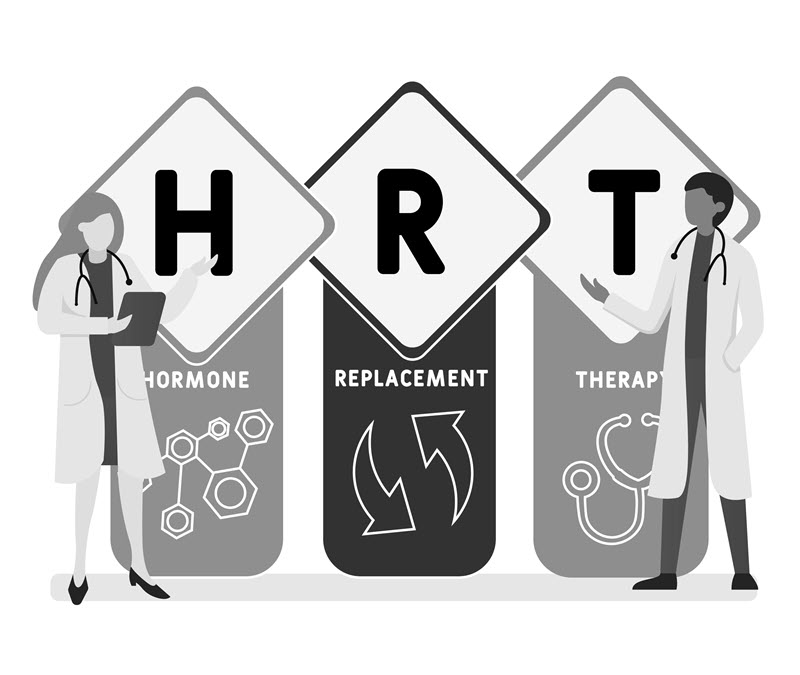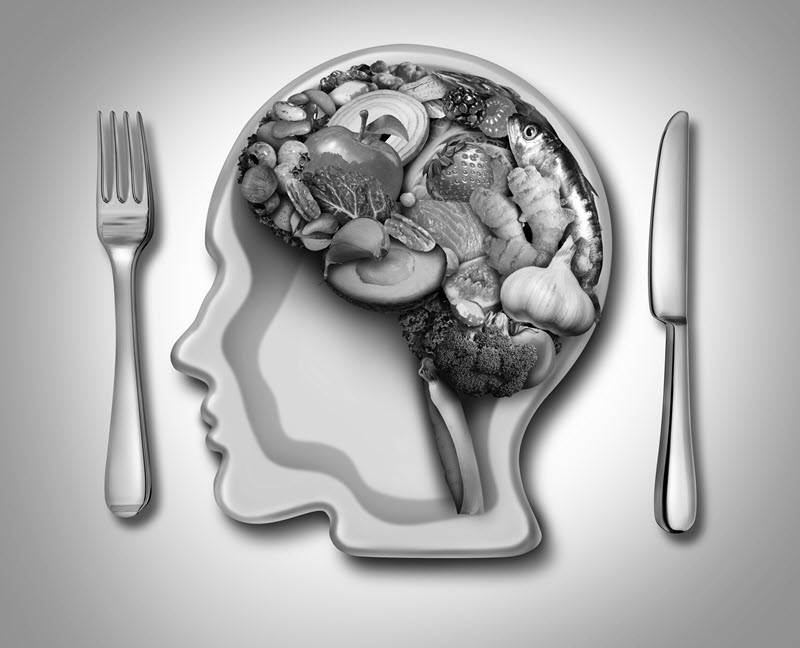Hormones are in a constant state of flux. Their varying levels influence both our body and our mind, impacting how we think, feel, and behave. Hormonal imbalance can also trigger mood disorders, such as anxiety and depression.
This article looks at how hormones affect mental health and offers tips on how to reduce stress and restore hormonal balance.

Hormones play a pivotal role in regulating the body’s physical and cognitive functions. These chemical messengers impact your thoughts, emotions, and behavior.
Both men and women can develop anxiety disorders because of hormonal imbalances. However, women are at a greater risk of hormone-related anxiety due to more prominent hormonal fluctuations. They are the most vulnerable before menstruation, during pregnancy and postpartum, in perimenopause, and menopause.
Hormonal changes can produce anxiety-related symptoms:
Hormonal anxiety does not feel any different from anxiety induced by other stressors. However, four indicators may point to hormones as the root cause of your anxiety:
Note: Learn more about hormonal weight gain, and how can you deal with this issue.
Optimal hormonal levels create a balanced body-mind relationship and contribute to your overall physical and mental health. Hormonal surplus, deficiency, or dysfunction may cause psychological difficulties, including anxiety.
Below is an extensive list of hormones that can cause anxiety if out of balance.
Progesterone relaxes and enhances one’s mood by increasing the function of GABA (gamma-aminobutyric acid) neurotransmitters, the brain’s main calming mechanism. When progesterone levels drop during menopause, this can cause irritability, anxiety, disrupted sleep and even depression.
While an optimal amount of progesterone has a soothing effect on the nervous system, elevated levels can trigger attachment anxiety – the fear of separation from a loved one.
Estrogen’s mood enhancing properties are due to its relationship to serotonin – also known as the “the feel-good chemical”. Estrogen promotes the synthesis of serotonin and prevents its degradation and reuptake.
Decreased estrogen levels lead to lowered serotonin activity and decreased density of serotonin receptors. This hormonal deficiency increases the chances of depression in premenstrual, postpartum, and perimenopausal period.
Note: Female hormone replacement therapy can relieve unpleasant menopause symptoms, including stress and anxiety.
Scientist have found that testosterone plays an important role in mental health. Although it is a male sex hormone, testosterone levels affect both men and women’s wellbeing. Research has shown that both men and women with depression and anxiety disorders have lower levels of testosterone.
Men are most likely to suffer from lowered testosterone levels, known as hypogonadism. This hormonal loss affects them in multiple ways: increased fat mass, decreased libido, lack of energy, and mood changes. Men who have undergone testosterone therapy for this condition report positive effects on their mood and decreased depression and anxiety.
In women, the effects of testosterone are less known. However, research confirms that women with the following conditions experienced improvement in anxiety and depression after taking low-dose testosterone:
Note: Some studies have shown that women with polycystic ovary syndrome (PCOS) are prone to developing depression and anxiety due to elevated levels of testosterone.
Cortisol is released by the adrenal glands and has many roles in our bodies, including regulating our response to stress. Keeping track of your cortisol levels is an essential preventive measure for mental wellbeing.
Excess secretion of cortisol by over-stimulation of the HPA (hypothalamic-pituitary-adrenal) axis creates a state of chronic stress. This imbalance triggers headaches, problems with memory, blurred cognition, anxiety, and depression.
Higher cortisol levels also negatively affect the amygdala, the region in the brain responsible for emotional processing and decision-making. Disturbed functioning of the amygdala increases anxiety in response to stress.
Note: Learn how to lower cortisol levels naturally.
Low cortisol levels can be equally, if not more, harmful to our mental health. Low cortisol production can be caused by weakened adrenal glands due to chronic physical and psychological stress. This sometimes leads to anxiety, depression, brain fog, and other symptoms, commonly grouped under the lay term adrenal fatigue.
Adrenaline (or epinephrine) and anxiety are closely related. In fact, it is the release of adrenaline that accompanies feelings of fear and anxiety, in the so-called fight-or-flight response.
Whenever we are in danger, the adrenal glands release this stress-related hormone. Its principal role is to put you in survival mode by increasing blood flow to the heart and lungs and activating energy in the muscles needed to overcome or escape a threat.
A hormonal imbalance or chronic exposure to stressors and long-term emotional distress can trigger spikes in adrenaline and cause panic attacks even when there is no real danger. As a result, people experience an adrenaline rush that produces increased sweating, rapid heart rate, and shallow breathing.
Note: Schedule a consultation at Vibrant Vitality Clinic to check if male hormone replacement therapy can help you optimize your hormonal levels and reduce anxiety.
The thyroid gland has a direct effect on our mental state. In fact, research has shown that patients with inflammation of the thyroid are more likely to develop anxiety disorders.
Hyperthyroidism (an overactive thyroid) can cause anxiogenic (anxiety-producing) behavior. This hormonal irregularity activates the amygdala, the center in your brain responsible for regulating emotions and sending distress signals to the brain. As a result, the sympathetic nervous system produces a heightened stress response. Typical symptoms include restlessness, excessive worry, and irritability.
Hypothyroidism (an underactive thyroid) disrupts the functionality of serotonin and leads to fatigue, low energy, and depression. Thyroid hormone deficiency makes patients overwhelmed and stressed out. Consequently, they may develop anxiety, too.
Oxytocin, the so-called ‘’love hormone’’, has a positive, anxiolytic (anxiety-reducing) effect by reducing the body’s stress response and regulating emotions. The hypothalamus releases oxytocin during social bonding, physical intimacy, sexual activity, even childbirth and breastfeeding, creating a positive feedback loop.
Most importantly, oxytocin modulates the activity of amygdala and early findings show that oxytocin reduces stress in patients with anxiety disorders.
Oxytocin is also responsible for strengthening the memory of stressful events and can eventually lead to increased anxiety when we are faced with a similar situation. Oxytocin’s ambiguous role in regulating behavior and wellbeing is still being researched.
If you suspect that your anxiety is caused by a hormonal imbalance, the first thing you should do is talk to a medical professional. They will assess other symptoms you may be experiencing and perform the right tests to establish whether disrupted hormonal levels are having a negative effect on your mental wellbeing.
Depending on your condition and the lab findings, your medical provider might recommend some of the following treatments and lifestyle changes.
A hormone detox supports the body’s natural processes to remove accumulated toxins and excess hormones, such as estrogen. A hormone detox speeds up metabolism, improves energy with an anti-inflammatory diet and supplements, and promotes healthy lifestyle habits. It enhances brain function, increases energy levels, and relieves stress, irritability, and anxiety.
A hormone detox is a an entirely natural way of balancing hormones and is a good start before any other treatment.
Bioidentical hormones are plant-sourced and chemically identical to the hormones produced by our bodies. Bioidentical hormone replacement therapy normally contains estrogen, progesterone, and smaller amounts of testosterone. This form of therapy alleviates perimenopausal and menopausal symptoms.
The psychological benefits of BHRT are:
Note: Vibrant Skin Bar health experts can evaluate if female bioidentical HRT can lessen your hormonal anxiety.

The brain-gut connection is extraordinarily strong. Your gut is effectively your “second brain,” the home of one hundred million neurons and more than thirty neurotransmitters. As such, it plays a crucial role in establishing a stable emotional state.
Intestinal distress, leaky gut syndrome, irritable bowel syndrome, and other gut problems have been linked to mental health issues such as anxiety and depression.
To combat anxiety and improve brain health, eat unprocessed, nutrient-rich food. These nutrients are known to have positive effects on the nervous system and moods:
Note: Including nutritional supplements in your diet may also help mitigate symptoms of hormonal anxiety. Learn more about the best supplements for anxiety.

Regular exercise alleviates symptoms of anxiety and improves overall resilience. Physical movement influences brain chemistry by releasing serotonin, which acts as a mood stabilizer.
Exercise decreases the activity of the amygdala, the part of the brain responsible for processing negative emotional stimuli. Therefore, exercise can serve both as a mood-booster and an effective stress-management tool.
Nowadays, psychotherapists integrate mindfulness-based stress reduction techniques to treat mental health problems. Research shows that a regular meditation practice modulates brain activity by lowering cortisol and adrenaline, and increasing serotonin and DHEA (dehydroepiandrosterone), the hormone used to produce other hormones, including estrogen and testosterone.
Although the stress-relieving effects of meditation are most noticeable during the practice itself, scientists have found that regular meditation has a permanent effect on the brain’s chemistry, changing the way we process emotions and stress even when not meditating.
Hormonal changes can provoke a range of mental health problems, including anxiety. Feeling stressed out, overwhelmed, or irritable during a prolonged period can negatively impact all aspects of our being, both mental and physical.
Lifestyle modification to include a healthy diet, regular physical activity, and relaxation techniques can help restore hormonal balance to a degree. If you want to find out more about your hormonal status and understand how hormone therapies can alleviate anxiety, consult the Vibrant Vitality Clinic team.
Next, learn more about hormonal depression.




4325 E Indian School Rd, Suite 130
Phoenix, AZ 85018
United States
(480) 422-2058
info@vibrantvitalityclinic.com
Monday - Friday: 9:00 am - 6:00 pm
Saturday: 9:00 am - 3:00 pm
Sunday: Closed
